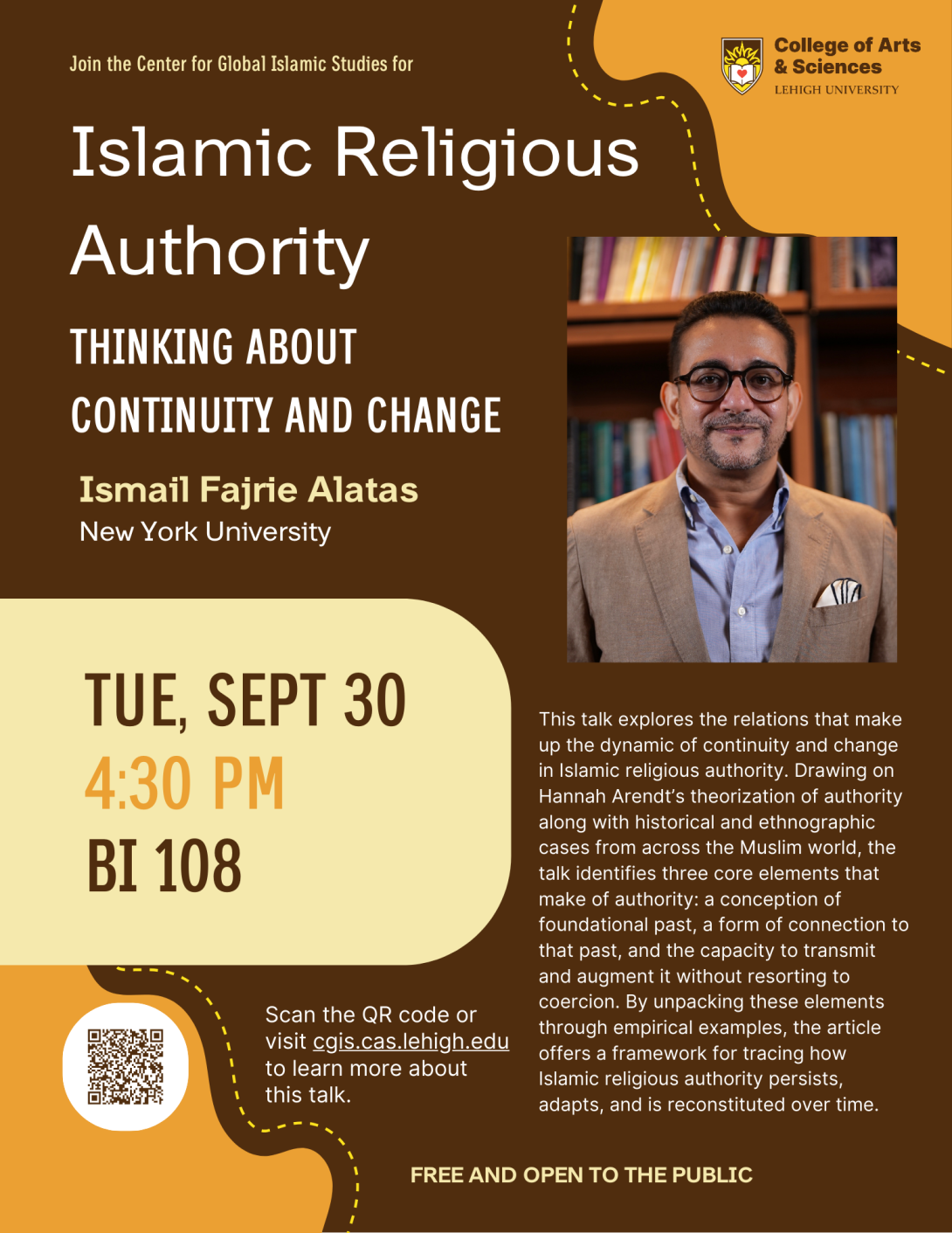This talk explores the relations that make up the dynamic of continuity and change in Islamic religious authority. Drawing on Hannah Arendt’s theorization of authority along with historical and ethnographic cases from across the Muslim world, the talk identifies three core elements that make of authority: a conception of foundational past, a form of connection to that past, and the capacity to transmit and augment it without resorting to coercion. By unpacking these elements through empirical examples, the article offers a framework for tracing how Islamic religious authority persists, adapts, and is reconstituted over time.
Ismail Fajrie Alatas is associate professor of Middle Eastern and Islamic Studies, and History at New York University, and a fellow of The Royal Aal al-Bayt Institute for Islamic Thought, in the Hashemite Kingdom of Jordan. He holds Ph.D. in Anthropology and History from the University of Michigan, Ann Arbor. He is the author of What is Religious Authority? Cultivating Islamic Communities in Indonesia (Princeton, 2021) along with many articles, the latest of which – “Voicing God’s presence: Qurʾānic recitation, Sufi ontologies, and the theatro-graphic experience” – appeared in Hau: Journal of Ethnographic Theory (2024). He is currently working on a new book project that explores wilāya as a form of friendship and protection in the Islamic tradition.

